Jose Mourinho: The 'Special One' Who Shattered Records All Over Europe
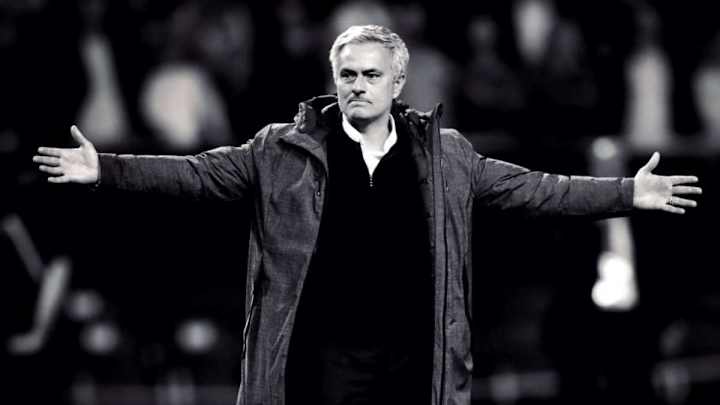
Jose Mourinho is number 9 in 90min's Top 50 Great Managers of All Time series. Follow the rest of the series over the course of the next two weeks. You can find out what Jose's All-Time Best XI is here.
Love him or hate him, you can't deny that Jose Mourinho is one of the greatest managers of all time.
One of the most polarising figures in the history of management, Mourinho has won fans and made enemies across Europe, but his enormous trophy cabinet is proof of his pedigree.
After his unspectacular playing career came to an end, Mourinho found his way into management under the legendary Bobby Robson. The Englishman had taken charge of Sporting CP in 1992, and Mourinho was brought in as his interpreter.
It quickly became clear to Robson that Mourinho was more than just a walking dictionary. He had an intriguing football brain, and Robson often asked for opinions and tactical analysis from Mourinho.
It was at Sporting Lisbon that Jose Mourinho first worked with Sir Bobby Robson... #CFC pic.twitter.com/0xJFIlGi0X
— Chelsea FC (@ChelseaFC) September 30, 2014
The pair enjoyed successful spells with Sporting, Porto and Barcelona, before Mourinho was handed his first taste of management with Benfica.
His time in charge of the club was the perfect example of what we would come to expect from Mourinho. On the pitch, his team played a stunning brand of football, but his clashes with club officials ultimately saw him leave after just nine games.
He continued to build his reputation with Uniao de Lairia and caught the attention of Porto, and it was here that Mourinho propelled himself onto the global stage.
With Porto struggling before his arrival, Mourinho implemented his intelligent and scientific style on the team and quickly reversed their fortunes. By the time his first full season came around, his preference for quick, high-pressing football had swept the nation, and the trophies began flooding in.
Career Honours
Primeira Liga (2002/03, 2003/04) |
|---|
Taca de Portugal (2002/03) |
Supertaca Candido de Oliveira (2003) |
UEFA Champions League (2003/04, 2009/10) |
Premier League (2004/05, 2005/06, 2014/15) |
FA Cup (2006/07) |
League Cup (2004/05, 2006/07, 2014/15, 2016/17) |
Community Shield (2005, 2016) |
Serie A (2008/09, 2009/10) |
Coppa Italia (2009/10) |
La Liga (2011/12) |
Copa del Rey (2010/11) |
Supercopa de Espana (2012) |
Europa League (2016/17) |
Success in both the Primeira Liga and UEFA Cup was great, but it was Porto's Champions League victory in 2004 which dominated headlines. En route to the final, Mourinho became somewhat of a cult hero when he sprinted down the touchline to celebrate a win over Sir Alex Ferguson's Manchester United, which was the ultimate proof of his charisma.
This personality, coupled with his ability to mastermind impressive victory after impressive victory, made Mourinho a wanted man, and it was Chelsea who ultimately won the race for his signature in the summer of 2004.
During his first press conference (via BBC Sport), Mourinho uttered the now-iconic line: "Please don't call me arrogant, but I'm a European champion and I think I'm a special one."
With Roman Abramovich, and his chequebook, at the helm, Mourinho recruited the likes of Ricardo Carvalho, Didier Drogba and Michael Essien, constructing a team capable of dominating English football for years to come.
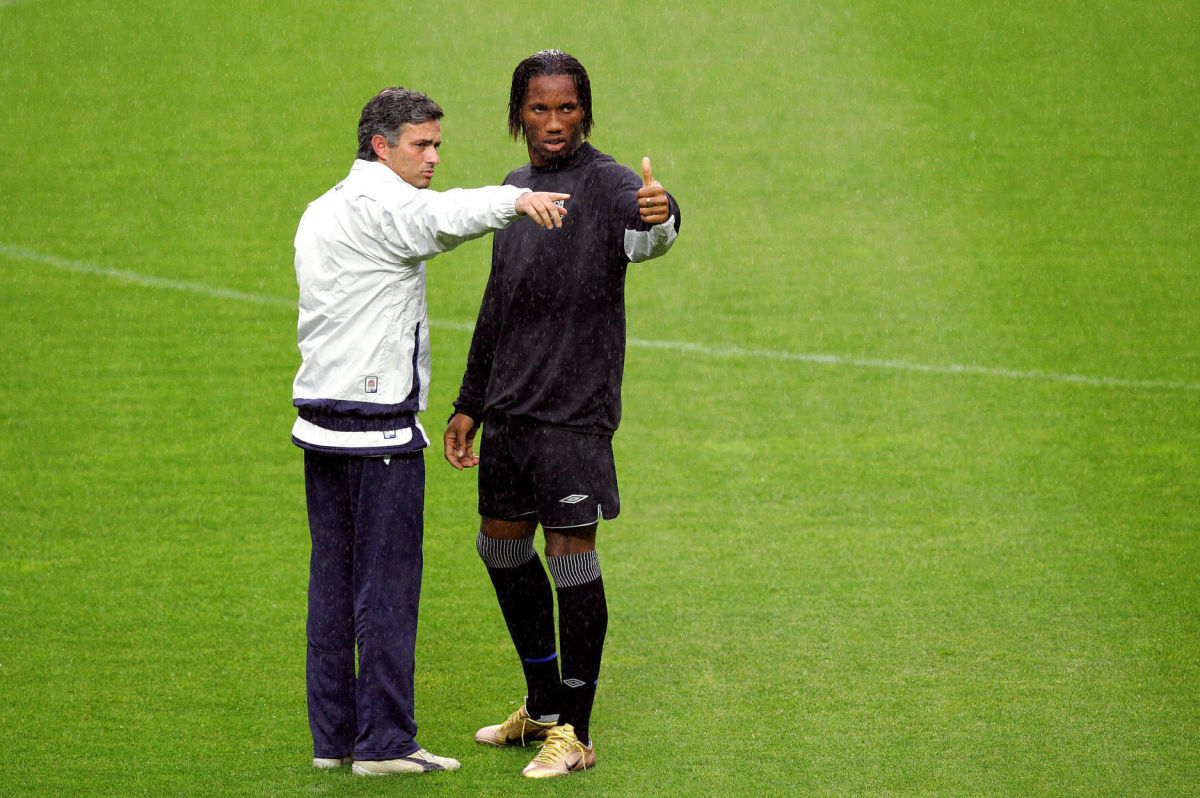
Against lesser sides, Mourinho's Chelsea would dominate. However, it was their performance against stronger opposition which won him even more fans. Regardless of the opponent, Mourinho could concoct a specific tactic to neutralise even the best players in the world, and his players were all good enough to put those plans into action.
Unsurprisingly, they waltzed to the Premier League title. Nobody could hold a candle to Chelsea, who shattered numerous records in the process. His side conceded just 15 league goals all season, which is almost hard to comprehend.
The success continued in the 2005/06 season, but the following campaign saw his empire begin to crumble. Clashes with Abramovich over the signing of Andriy Shevchenko from AC Milan created a real sense of unease around Stamford Bridge, which ultimately cost him his job in September 2007.
A move to Italy followed, with Mourinho joining Inter in the summer of 2008. Unlike with Chelsea, Mourinho was not particularly active in the transfer market during his first season, yet still managed to guide the Nerazzurri to the Serie A title.
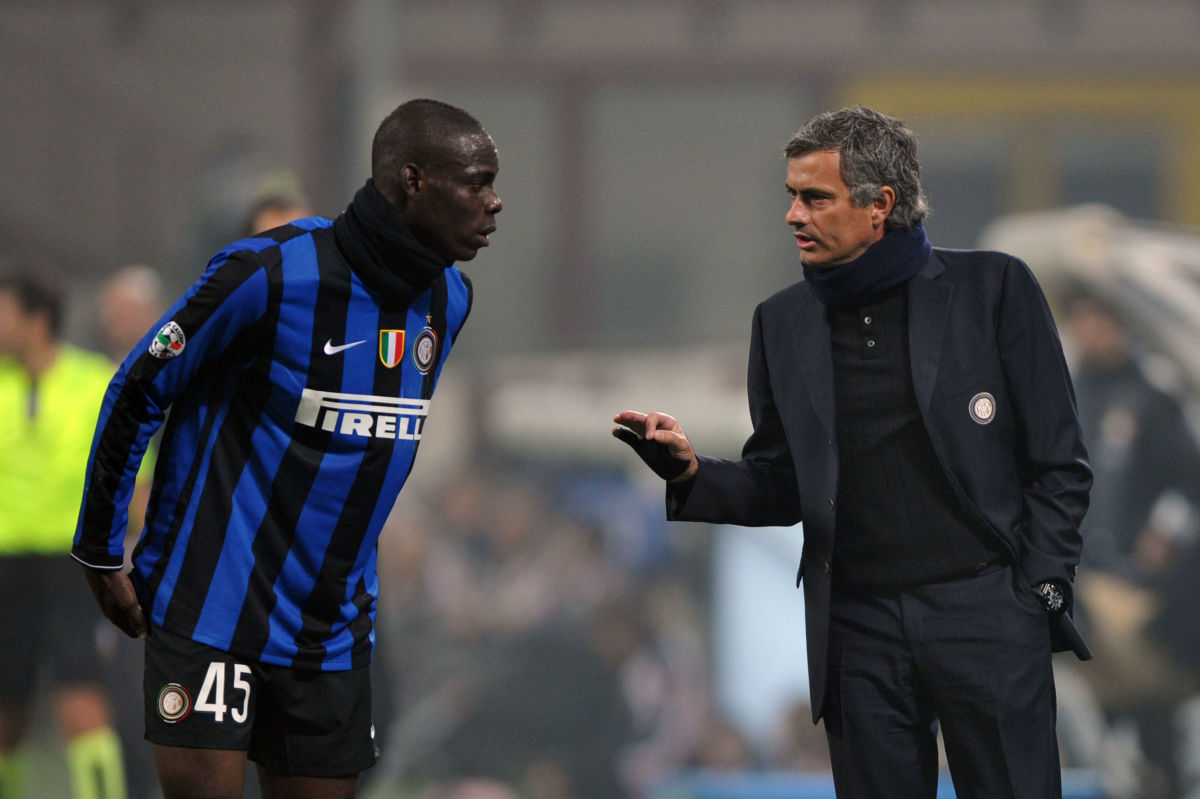
Instead of blockbuster signings, he focused on integrating academy stars like Mario Balotelli and Davide Santon in his side, proving that he did not need big names to succeed with his brand of football. It wasn't about players, it was about flawless tactics.
However, he returned to the transfer market the following summer to recruit the likes of Diego Milito, Samuel Eto'o and Wesley Sneijder, in the hope that Inter would be able to compete for the Champions League, which they would go on to win in emphatic fashion.
The 2009/10 season was perhaps the perfect snapshot of Mourinho's career. He steered Inter to an incredible treble, whilst simultaneously criticising opposing managers, referees and rival fans for days on end. It was everything we have come to expect from the boss.
Real Madrid were clearly not concerned by his conduct and agreed a record-breaking compensation package to lure Mourinho to the Santiago Bernabeu that summer. However, it was here that Mourinho suffered arguably one of the worst results of his career.
Teams Managed
Benfica (2000) |
|---|
Uniao de Leiria (2001-02) |
Porto (2002-04) |
Chelsea (2004-07, 2013-15) |
Inter (2008-10) |
Real Madrid (2010-13) |
Manchester United (2016-18) |
Just months after his arrival, Mourinho's Real were thumped 5-0 by rivals Barcelona, and the Portuguese tactician was simply unable to counter the potent attacking threat of the Blaugrana. He got his revenge in that season's Copa del Rey final, but there were still concerns about his first season in Madrid.
However, as he so often does, Mourinho bounced back in emphatic fashion and secured the La Liga title at the expense of Pep Guardiola's superhuman Barcelona side. They shattered countless records, such as most games won, most points won and most goals scored. If you were in any doubt, this Real team were the real deal.
Unfortunately, things broke down just as quick. His relationships with key players like Iker Casillas, Cristiano Ronaldo and Sergio Ramos broke down, and clashes with club officials ultimately saw Mourinho leave Madrid in 2013 and return to Chelsea.
No longer the 'Special One' but the self-proclaimed 'Happy One', Mourinho went about sculpting Chelsea into his desired form, taking a year to get to know his players. However, it was during this traditional year that his stunning home record came to an end.
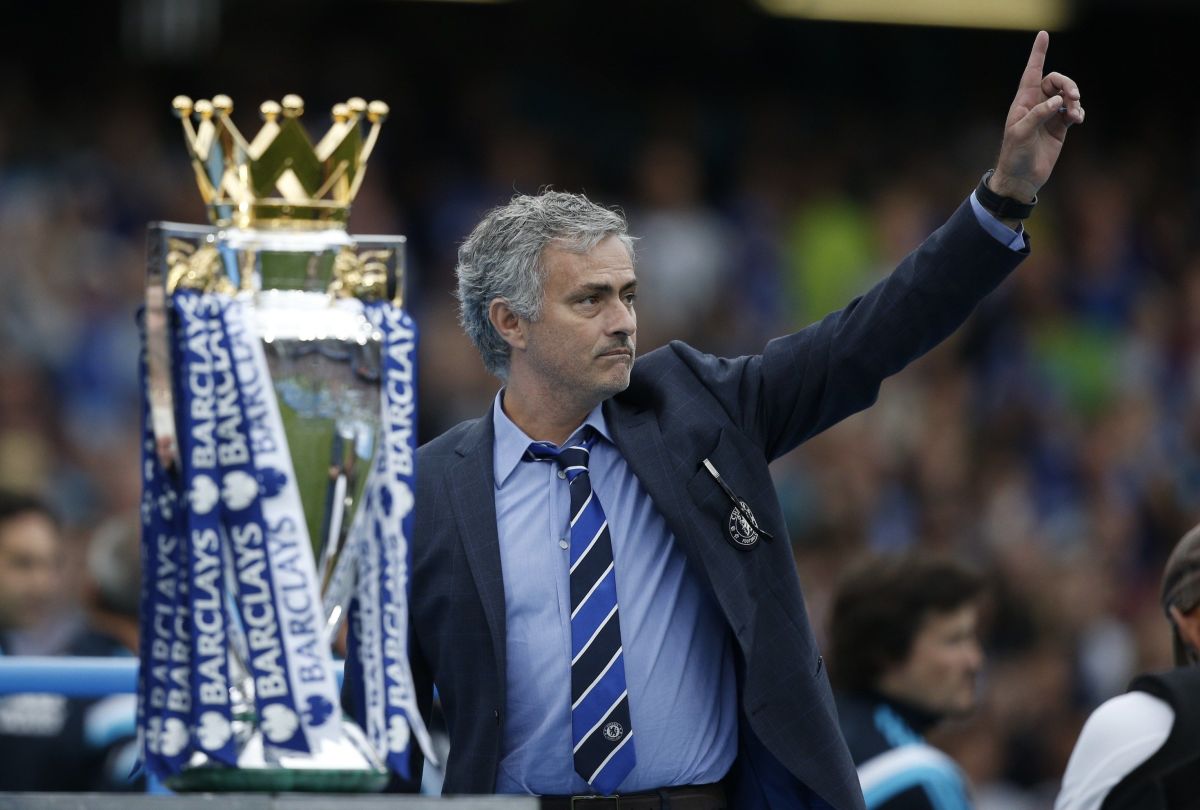
A 2-1 defeat to Sunderland in 2014 brought an end to his 78-game undefeated run at Stamford Bridge. 78 games. To this day, no manager has come even close to matching that record in the Premier League.
Recruiting Diego Costa and Cesc Fabregas signalled Mourinho's intent for the 2014/15 season. He knew what he work working with and moved quickly to address the weaknesses in his squad and, yet again, Mourinho steered Chelsea to the Premier League title. It's getting hard to keep track of all this silverware.
However, yet again things spiralled out of control quickly. He was unceremoniously sacked by December, with the club perilously near the bottom of the league table, and he eventually found his way to Old Trafford with Manchester United in 2016.
By this time, controversy was part of Mourinho's diet. Yet, so was success. An unconventional treble of the Community Shield, EFL Cup and Europa League followed in his first season, as Mourinho proved he still had what it took to mastermind a plan.
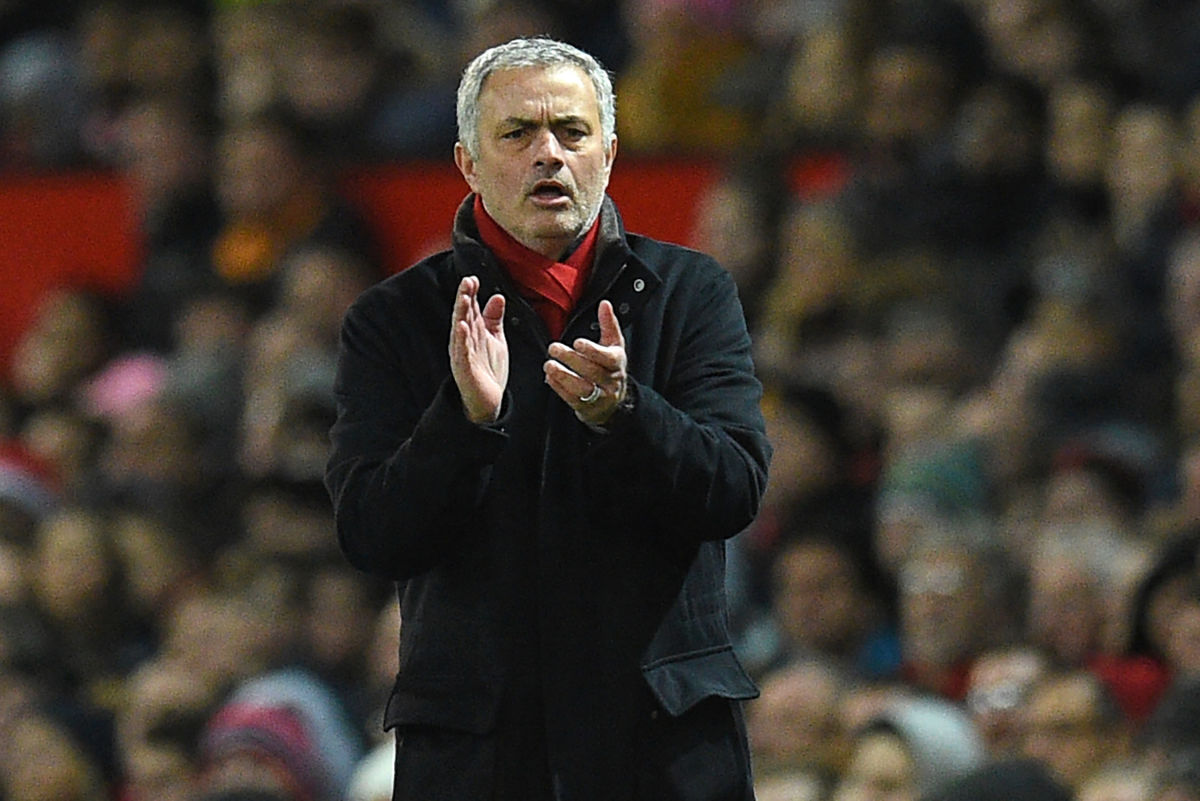
In fact, it was a 2-0 victory over league leaders Chelsea in April 2017 which brought that to the world. He designed a perfect strategy to neutralise Eden Hazard, and the Belgian was about as ineffective as we have ever seen. Mourinho just knew how to win games, regardless of opposition.
He led United to second in the Premier League in the 2017/18 campaign, but soon lost control of the Red Devils. Their slump in form saw him dismissed in December 2018, but even his replacement, Ole Gunnar Solskjaer, could not save things.
Mourinho's career has been full of incredible highs and shocking lows. Recent seasons have tarnished his reputation slightly but, when it comes to pure winners, they don't come better than Mourinho.
His tactics were revolutionary and inspiring, and rarely have we seen a manager who simply understands football like him. To achieve unprecedented success with a number of different sides is nothing short of extraordinary, and Mourinho certainly changed the way many fans view football.
Number 50: Marcelo Bielsa - El Loco's Journey From Argentina to Footballing Immortality in Europe
Number 49: Vic Buckingham - How an Englishman Discovered Johan Cruyff & Pioneered Total Football
Number 48: Claudio Ranieri: A Ridiculed Tinkerman Who Masterminded One of Football's Greatest Ever Achievements
Number 47: Bill Nicholson: Mr Tottenham Hotspur, the First Double Winning Manager of the 20th Century
Number 46: Sven-Goran Eriksson: The Scudetto Winning Shagger Who Never Solved the Lampard-Gerrard Conundrum
Number 45: Sir Alf Ramsey: The Man Behind the 'Wingless Wonders' & England's Sole World Cup Triumph
Number 44: Antonio Conte: An Astute Tactician Whose Perfectionist Philosophy Reinvented the 3-5-2 Wheel
Number 43: Kenny Dalglish: The Beacon of Light in Liverpool's Darkest Hour
Number 42: Massimiliano Allegri: The Masterful Tactician Who Won Serie A Five Times in a Row
Number 41: Sir Bobby Robson: A Footballing Colossus Whose Fighting Spirit Ensured an Immortal Legacy
Number 40: Luis Aragones: Spain's Most Important Manager, the Atleti Rock and the Modern Father of Tiki-Taka
Number 39: Herbert Chapman: One of Football's Great Innovators & Mastermind Behind the 'W-M' Formation
Number 38: Carlos Alberto Parreira: The International Specialist Who Never Shied Away From a Challenge
Number 37: Franz Beckenbauer: The German Giant Whose Playing Career Overshadowed His Managerial Genius
Number 36: Viktor Maslov: Soviet Pioneer of the 4-4-2 & the Innovator of Pressing
Number 35: Rafa Benitez: The Conquerer of La Liga Who Masterminded That Comeback in Istanbul
Number 34: Zinedine Zidane: Cataloguing the Frenchman's Transition From Midfield Magician to Managerial Maestro
Number 33: Luiz Felipe Scolari: How the Enigmatic 'Big Phil' Succeeded as Much as He Failed on the Big Stage
Number 32: Jupp Heynckes: The Legendary Manager Who Masterminded 'the Greatest Bayern Side Ever'
Number 31: Vicente del Bosque: The Unluckiest Manager in the World Who Led Spain to Immortality
Number 30: Arsene Wenger: A Pioneering Who Became Invincible at Arsenal
Number 29: Udo Lattek: The Bundesliga Icon Who Shattered European Records
Number 28: Jock Stein: The Man Who Guided Celtic to Historic Heights & Mentored Sir Alex Ferguson
Number 27: Vittorio Pozzo: Metodo, Mussolini, Meazza & the Difficult Memory of a Two-Time World Cup Winner
Number 26: Jurgen Klopp: The Early Years at Mainz 05 Where He Sealed His 'Greatest Achievement'
Number 25:Mario Zagallo: Habitual World Cup Winner & Sculptor of Brazil's Joga Bonito Era
Number 24: Bela Guttmann: The Dance Instructor Who Changed Football Forever (and Managed...Just Everyone)
Number 23: Valeriy Lobanovskyi: The Scientist Who Dominated Football in the Soviet Union
Number 22: Louis van Gaal: The Stubborn Master Who Won 15 Major Trophies at 4 of the World's Greatest Clubs
Number 21: Otto Rehhagel: The 'King' Who Turned 150/1 Greek Outsiders into Champions of Europe
Number 20: Tele Santana: The 'Joga Bonito' Icon Who Helped Brazil Rediscover Their Love of Football
Number 19: Bill Shankly: The Innovative Motivator Who Rebuilt Liverpool From the Ground Up
Number 18: Ottmar Hitzfeld: The Manager Who Won Absolutely Everything at Germany's 2 Biggest Clubs
Number 17: Miguel Muñoz: The Man Who Told Alfredo Di Stefano to F*ck Off & Led the Ye-Ye's to European Glory
Number 16: Fabio Capello: Italy's Cosmopolitan Disciplinarian Who Built on a Generation-Defining AC Milan
Number 15: Brian Clough: He Wasn't the Best Manager in the Business, But He Was in the Top 1
Number 14: Nereo Rocco: 'El Paron', the Pioneer of Catenaccio & Forgotten Great of Italian Football
Number 13: Carlo Ancelotti: Football's Most Loveable Eyebrow in the Words of His Players
Number 12: Sir Matt Busby: The Man Who Built the Modern Manchester United
Number 11: Marcello Lippi: Montecristo Cigars, Neapolitan Dreams, Scudetti in Turin & Gli Azzurri's World Cup
Number 10: Bob Paisley: The Understated Tactician Who Conquered All of Europe With Liverpool
